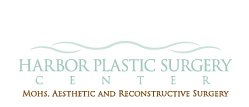FAQs
What is Mohs Surgery?
Mohs is a technique for removing skin cancer that has the highest cure rate while preserving the most tissue possible. This technique creates a surgical hole in the soft tissues from which the cancer was removed. The technique of Mohs surgery strictly removes the cancer. Traditional Mohs surgeons do not always reconstruct the area as they are trained in dermatology, not plastic surgery. If the cancer is larger, or in a cosmetically sensitive area, a patient may require a separate procedure at a later date by a plastic surgeon.
Why is Mohs recommended?
In order to treat skin cancer, the cancer needs to be removed. This can be done using a variety of methods, and each has pluses and minuses. What must be considered, in addition to cure rates, when selecting the appropriate treatment is what happens after the cancer is removed. Removing cancer creates a hole. Mohs surgery offers the highest cure rate of all techniques, with the least amount of tissue removed.
Why choose Dr. Piasecki?
The decision to use a specific doctor for a skin cancer surgery should not be taken lightly. There are many other doctors in the country certified in Mohs surgery. There are also other doctors Board-certified in plastic surgery. Dr. Piasecki, however, is the only doctor in the world double Board-certified in plastic surgery and facial plastic surgery, who is also a member of the Mohs college (the highest level of certification for Mohs surgery). This equates to the highest level of training, knowledge and skill available for skin cancer eradication and reconstruction. Dr. Piasecki’s outstanding track record is statistically higher than national averages in the areas of cure rates, low complication rates, and high function/desired cosmetic results and he has a patient satisfaction rating of over 99%.
What will be required for Reconstruction?
What is required for reconstruction is often an unknown until Mohs surgery is performed. As the roots of any skin cancer cannot be seen with the naked eye, it is impossible to speculate on the true size of the cancer, its depth of invasion and all the structures involved. Dr. Piasecki can determine the full extent of the cancer only once it has been diligently reviewed under a microscope utilizing the Mohs technique. As the face contains critical structures (nerves, tear ducts, structural support for nose breathing, etc) the extent of the reconstructive requirements may vary greatly from a few stitches to advanced work such as tear duct repairs, cartilage grafts to rebuild nose structure, or even require more than one stage of reconstructive surgery.
Is the reconstruction just one single “procedure”?
Post-surgery reconstruction is not a clear-cut task. In some cases several structures are involved requiring multiple procedures for the most ideal functional and cosmetic results. Most often all procedures are completed in the same operative setting allowing the patient to be have all surgeries accomplished within the same appointment. The goal of your reconstruction will be the simplest and most reliable means of repair, in a fashion that minimizes the risk of complications and maximizes the desired result of simple, uneventful and functional healing.
Why operate in an ASC (ambulatory surgery center) rather than the hospital?
At Harbor Plastic Surgery Center, reconstructive surgeries are performed in the Ambulatory Surgery Center (ASC). This center is attached to Dr. Piasecki’s clinic and is separate and distinct from the hospital. It is accredited by AAAHC and Medicare (the most respected and rigorous accrediting agencies for ASCs in the country) and is licensed by the State of Washington. The ASC maintains high standards with respect to safety and health outcomes – sterility, special ventilation, temperature and humidity control, monitoring, emergency protocols, staff training, etc. National studies have shown lower infection rates, fewer complications and better outcomes following surgery in this controlled environment versus a hospital operating room; and compared to a clinic setting alone, reconstructive procedures in an ASC have a seven-fold lower rate of infection. Our center exists so that we can offer patients less risk, more safety and better outcomes.
What is Harbor Plastic Surgery Center’s involvement as it relates to insurance billing?
At Harbor Plastic Surgery Center our mission, obligation and role in your health care is to treat you and your cancer in a manner that maximizes health outcomes (cure rate, functional and cosmetic result at the end of healing) and minimizes complications along the way. In this approach, your treatment plan is designed to benefit your health and safety. It is not our duty to interact with insurance companies beyond the submitting bills on your behalf. We are experts at treating skin cancer; we do not create, craft, regulate or control your choice of insurance plan, deductibles, coinsurance or copayments. Coding regulations and our contractual obligations with Medicare and insurance companies obligate us to precisely document and bill for treatment performed while under our care, including: the removal of the cancer (Mohs), each reconstructive procedure, and corresponding facility code for each procedure performed in the operating room. It is not uncommon for bills for each of these components to be processed by your insurance company at different times. Noteworthy is the fact that treatment of your skin cancer at HPSC also represents the most cost effective care with the best possible outcome. Removal of the cancer and reconstruction by the same doctor in an outpatient facility such as HPSC represents a significant cost savings over the current standard nationwide (process which often involves removal by a dermatologist and reconstruction by a plastic surgeon in a hospital operating room); average savings per patient last year amounted to approximately $6,245.
What is my responsibility as a patient?
You are an integral part of your treatment plan. It is your responsibility to make sure you understand your treatment options and to ask questions if things are unclear. You are expected to decide on a treatment plan once the options have been explained and it is your obligation to follow treatment instructions carefully. If questions or concerns arise regarding your healing or care, you may contact Dr. Piasecki directly at any time. He will provide you with his personal cell phone number and is available 24 hours a day. It is your sole responsibility to pay for medical care provided. Many patients carry health insurance to assist them financially; however, the specifics of your insurance plan including deductibles, networks, co-insurance, covered benefits, etc. are between you and your insurance company and are your responsibility to know. Each insurance company has a wide variety of plans - your doctors will not know the specifics of your individual plan. As a courtesy, Dr. Piasecki’s office will bill your insurance company for services rendered, but ultimately the responsibility for dealing with your chosen insurance company and paying for your medical care is yours.
Can you determine my financial responsibility prior to surgery?
For private pay patients, we provide a fixed cost that covers all surgery and follow-ups for a year. For insurance patients, we provide our best guess based on the visible cancer, location, and your insurance plan.
New patients meet with our patient care coordinator and discuss financial responsibility. Because of the nature of skin cancer and how insurance billing is done in the United States, if we are billing insurance, we can only provide you with an estimate. We will not know the extent of the cancer until it is fully removed. Therefore, we cannot predict with certainty, what will be required to reconstruct the defect. Dr. Piasecki will give you a worst case scenario estimate based on years of treating skin cancer. For insurance patients, we collect deductibles prior to surgery. For private pay patients, full payment is due at the time of surgery.
Financing is available through American HealthCare Lending (see link to the left) or CareCredit.
What is involved in a remote consultation?
Before discussing treatment options via remote consultation, Dr. Piasecki will require a report from a pathologist showing the cancer. Once this has been provided, he will present the patient with all treatment options and help in making the best choice possible.
How can I schedule an appointment?
If you have a suspicious spot, need a skin check or have a diagnosed skin cancer, please call the Harbor Plastic Surgery Center and make an appointment to be seen by Dr. Piasecki. He will coordinate your care with The Skin Cancer Center physicians. If you are from out of the area, please call our office or email justin@drpiasecki.com for an email or phone remote consultation.
What is involved in combining cosmetic procedures with Mohs surgery?
Dr. Piasecki is an award winning, Board-certified plastic surgeon and can combine plastic micrographic surgery with an elective cosmetic procedure. Patients often appreciate the convenience and cost reduction benefit of up to 30% by combining minimally invasive procedures with plastic micrographic surgery. For a complimentary consultation regarding adding a cosmetic procedure following Mohs surgery, please contact the Harbor Plastic Surgery Center. Dr. Piasecki reserves the right to cancel the cosmetic procedure if he believes it will compromise the skin cancer surgery. These will be performed at a later date or cancelled with a full refund.





